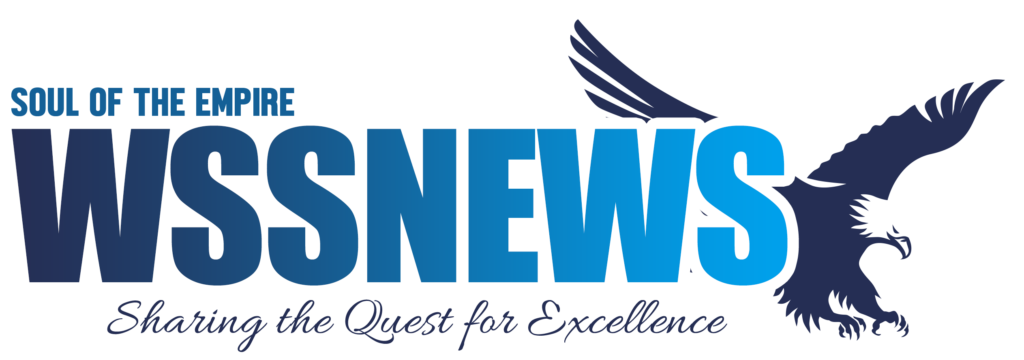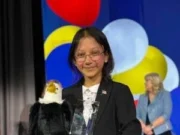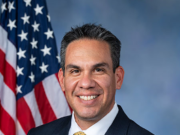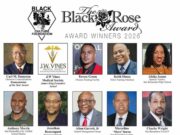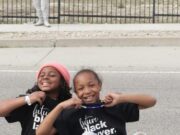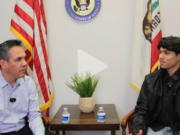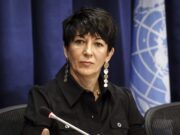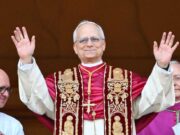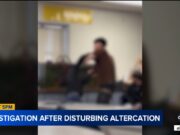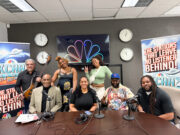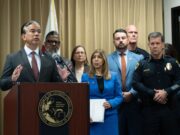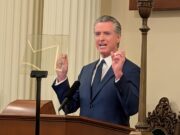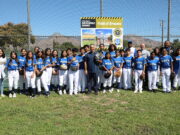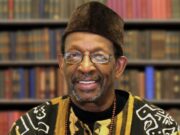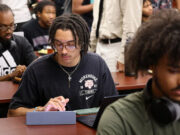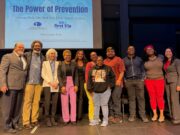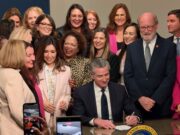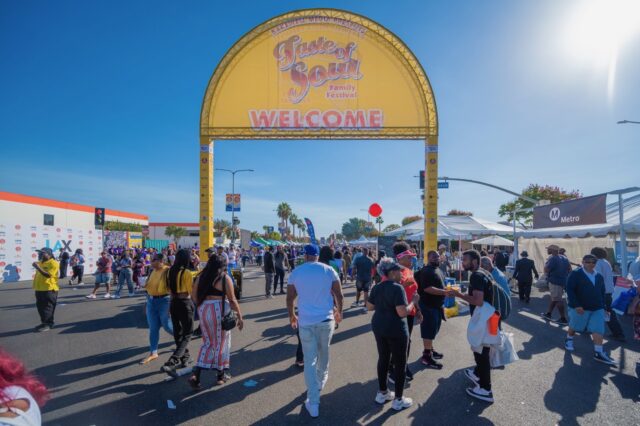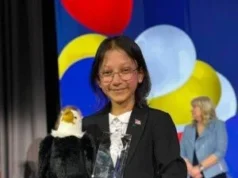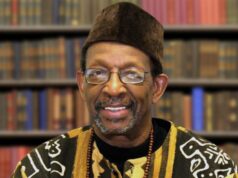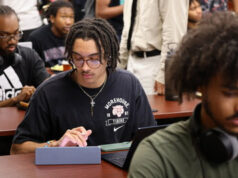By Joe W. Bowers Jr. California Black Media
For 20 years, the Taste of Soul festival has brought food, music and community pride to Crenshaw Boulevard in Los Angeles. This year’s festival, held on Oct. 18, carried even deeper meaning for organizers and festivalgoers. The day before the celebration, the City of Los Angeles officially named the intersection of Crenshaw and Obama boulevards Danny J. Bakewell Sr. Square, honoring the civil rights leader, businessman and founder of Taste of Soul.
At the dedication, Bakewell reflected on how the festival became something larger than he ever imagined — a celebration created by and for Black Los Angeles. He described Taste of Soul as “a big family reunion,” a day that proves the community can build and sustain something powerful on its own streets.
On the morning of the festival, Crenshaw Boulevard was packed. CBS News estimated more than 300,000 people attended the 20th Annual Taste of Soul. CBS also reported that there were around 300 booths, including more than 100 food vendors. Bakewell and organizers say the number of vendors is now approaching 400. What is certain is that Taste of Soul has grown into one of the most important economic events of the year for small businesses in South Los Angeles.
Food remains the heart of the festival. Barbecue pitmasters, cobbler bakers, seafood stands, lemonade makers and vegan chefs lined the boulevard, many serving family recipes passed down through generations. Alongside them were retail vendors selling clothing, jewelry, beauty products, artwork and handmade goods — most of them Black-owned and local. Several vendors said they work regular jobs during the week and rely on festivals like Taste of Soul to move closer to full-time entrepreneurship. For them, the festival means visibility, income and community support.
The festival was about more than food. Health organizations provided free screenings and flu shots. Nonprofits offered social services. Political candidates and government agencies set up outreach booths.
California Black Media (CBM) hosted a booth in partnership with the California Department of Justice Civil Rights Division (CRD). The shared space represented two separate efforts — the state-funded Stop the Hate campaign and CBM’s Black Health Journalism Project. Stop the Hate focused on helping people understand how to recognize and report hate incidents. The California Black Health Journalism Project is a separate initiative organized to make accurate health information more accessible and document storytelling focused on the social, environmental and economic factors shaping health outcomes in Black in Black communities.
At the booth, Dr. Deidra Beckles and Dr. Imani McElroy held “Ask the Doc” conversations, answering medical questions from attendees. The booth remained busy throughout the day, and every “Ask the Doc” water bottle, stress ball and CA vs Hate tote bag was gone well before the festival ended. Brandon Brooks, CBM’s project manager working with CRD, said the festival was an important opportunity to connect directly with residents about civil rights and hate prevention.
This year’s festival also attracted statewide political candidates. Among those present were 2026 gubernatorial candidates California State Superintendent of Public Instruction Tony Thurmond, former Los Angeles Mayor Antonio Villaraigosa, and professor and community advocate Butch Ware, whose campaign hosted a booth. Local officials also walked Crenshaw — Mayor Karen Bass, Los Angeles County Supervisor Holly Mitchell (2nd District), State Sen. Lola Smallwood-Cuevas (D-Los Angeles), City Council President Marqueece Harris-Dawson (District 8) and Councilmember Heather Hutt (District 10).
One of the most heavily attended areas at the festival was the LAX/Los Angeles World Airports Pavilion. LAX hosted panel discussions titled “The Essence of L.A.,” “Putting the LA in LAX” and “$30 Billion Worth of Opportunity.”
The final panel focused on business contracts, workforce hiring and how South Los Angeles residents can benefit from the airport’s ongoing modernization. Staff helped residents fill out job applications and learn about contracting opportunities throughout the day.
Entertainment has been central to Taste of Soul since it began, and the 20th year stayed true to that tradition. Three stages ran all day. Music lovers packed in to hear Cameo, Rolls-Royce, the Mary Jane Girls, and Montell Jordan, who brought the crowd to its feet with “This Is How We Do It.” On the Brenda Marsh-Mitchell Gospel Stage, Karen Clark Sheard delivered a stirring performance that grounded the day in spirit and tradition.
Actress and comedian Tiffany Haddish returned as Celebrity Soul Chair, a role she has embraced over the years. Haddish helped host performances, greeted vendors and continued her support of local businesses. Recently, she helped to raise funds for Dulan’s Soul Food Kitchen, a longtime Taste of Soul vendor. In appreciation of the community’s support, Dulan’s offered 800 free meals during the event — a gesture that reflected the spirit of giving that defines Taste of Soul.
For 20 years, Taste of Soul has been more than a festival — it’s been a testament to the strength and unity of South Los Angeles. Each year, it runs safely and successfully, supported by churches, small businesses, public agencies, health providers, sponsors and Black media. This year, with more than 300,000 people filling Crenshaw Boulevard in peace to celebrate food, culture and community, that legacy was clear.
